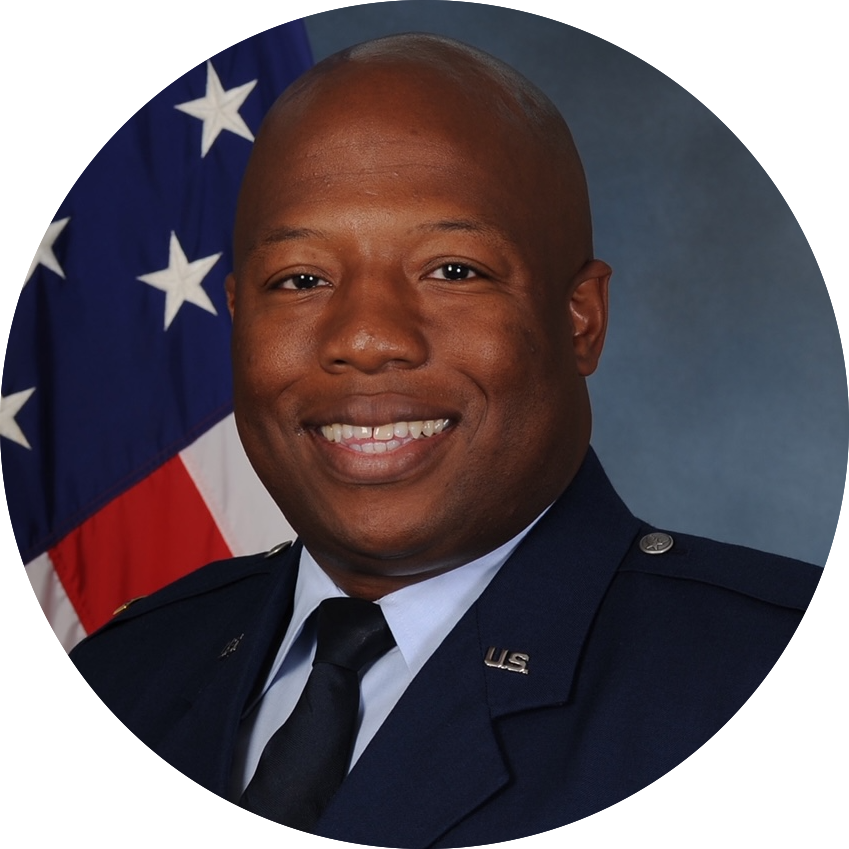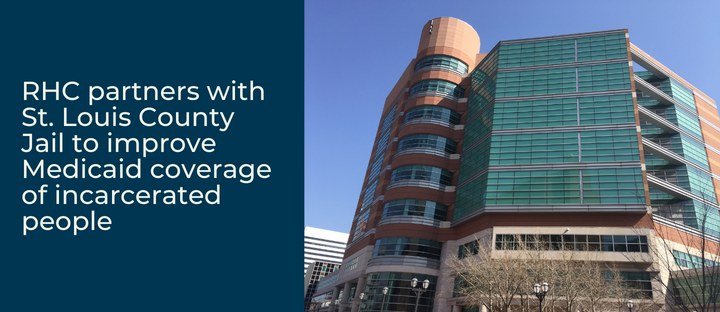Overview
The Regional Health Commission (RHC) has partnered with the St. Louis County Department of Public Health (DPH) to mass-enroll people incarcerated in the St. Louis County Jail in Medicaid health insurance coverage.
The goal of the initiative is to help those who are incarcerated apply and enroll in Medicaid so that when they are eventually released from the justice center, they have access to care and necessary health services. Through the joint effort, the RHC and DPH hope that this initiative targets vulnerable individuals to help them live their best and most fulfilling life upon release. Ernest M. McDonnell, Public Health Coordinator of the St. Louis County Department of Public Health is helping to lead this project for the DPH.
“Everyone has a right to health care, and not being able to serve those who are uninsured or without access was an issue of mine.”
Ernest M. McDonnell, St. Louis County Department of Public Health
The team is looking for partners to help expand this work!
Progress
Launched October 10th, the initiative has allowed the RHC and DPH to enroll over 100 people. The overall goal of the initiative is to enroll 800+ total individuals, but even this initial increase brings the total insured population in the St. Louis County Jail to over 80%.
DPH understands the importance of improving access to care and hopes to draw on established policies and procedures to make Medicaid enrollment a regular part of “floor assessments”, which involve individuals who have been in the St. Louis County Jail for over 48 hours. At this time, without proper staffing assistance, it is hard to gauge the insurance status of individuals who are quickly “booked and released”, but if it is possible to enroll all those who remain in the St. Louis County Jail for over 48 hours in Medicaid, that would be a huge accomplishment and step towards improving access to care in our community.
Purpose
There is a lot of confusion among the incarcerated population about the status of their health insurance: many assume they are uninsured despite having insurance or were under the impression they did have insurance and were not actually covered. This initiative is a great opportunity to improve access to coverage and clarify confusion among our community-members.
Blessing Kuebee, Strategic Initiatives Director of the RHC also described the vision and interest of the RHC in this initiative:
“This work is critical and well-aligned with efforts of the RHC to improve access to care. Each year, the RHC publishes our Access to Care report, but at times, it feels challenging to make the report actionable because the data is a year or two behind its publication date.”
Blessing Kuebee, Regional Health Commission
Not only is this initiative timely and responding to current community needs, but it looks into the future and improves access both today and tomorrow. By educating and empowering community members to understand their options and promote agency, they have the opportunity to amplify their needs and access necessary services. The RHC is perfectly aligned to be involved in this work and continue in the future.
Ernest also described a recent push in the St. Louis area to encourage individuals to seek primary health care as opposed to urgent care or visiting the emergency department: “Enrolling people who are incarcerated in Medicaid coverage goes hand-in-hand with this push towards primary care but provides an additional opportunity and location to amplify these conversations.”
Ernest believes that even a brief conversation with individuals from the incarcerated population is a space to underscore the importance of health care and will benefit all community members in the process:
“Health reimagines one’s personhood and values for themselves, and that effect trickles down to help with all members of a household. Enrolling individuals in Medicaid and helping them take care of their health indirectly benefits all members of the household: kids, peers, elders, and anyone else can be motivated to take care of themselves in the same way.”
Ernest M. McDonnell, St. Louis County Department of Public Health
Goals
According to Ernest, one goal of the initiative was to change the culture of the DPH. The DPH hadn’t previously made enrolling those incarcerated in the St. Louis County Jail a strategic initiative. Partnering with the Regional Health Commission allowed DPH to start talking through the logistics of enrolling people who are incarcerated and planning for a rollout to increase support.
Sustainability is another major goal at this time. DPH is hoping to bring in Community Health Workers (CHWs) to help with long-term support and sustainability of the initiative. Specifically, because CHWs are well-equipped to do the interviews, they can help with floor assessments and to fill in any other appropriate areas, particularly while staffing is limited. DPH is hoping to begin recruiting and utilizing CHWs as soon as January 2023.
Corrections Medicine, the program which provides medical, mental health, and dental services for individuals incarcerated, is also hoping to expand their dental services and add eye care in the future. Currently, the St. Louis County Jail offers dental services three out of seven days a week but is hoping to partner with an academic institution to provide services on the days dental care is not currently available. Additionally, Corrections Medicine is looking to expanding eye care to better manage those who have prescription glasses, contacts or any additional eye concerns.
Ernest believes that extending these health services will make a huge difference in the health of the incarcerated population:
“We really want to promote and value the health of our incarcerated population. Providing those additional services will create opportunities for individuals to value and improve their health.”
Ernest M. McDonnell, St. Louis County Department of Public Health
He also added that Corrections Medicine “has the space” and “just need(s) to make the partnership and relationship happen.” Anyone with interest or who is looking to partner should contact Ernest (emcdonnell@stlouiscountymo.gov).
Unfortunately, we won’t be able to directly measure the impact of this initiative and enrollment efforts until after these individuals are released and are accessing health services using Medicaid coverage, but we are hoping to connect with enrollees at a later time so that we can assess the long-term impact.
Get Involved
Considering where the St. Louis County Jail is located within the region and the previously mentioned workforce constraints, DPH and RHC are looking for more volunteers and overall help with the initiative. Up to date, there have been a few training opportunities for volunteers to learn how to help those are incarcerated apply for Medicaid. If you or your organization are interested in being trained in Medicaid application assistance and volunteering with the St. Louis County Jail, please email Blessing (bkuebee@stlrhc.org) or Ernest (emcdonnell@stlouiscountymo.gov).
So far Washington University in St. Louis Medical School students, Eden Theological Seminary students, and additional partners have volunteered to help with enrollment, but DPH and RHC are hoping to increase the number of volunteers and involve more members from our community going forward. At the moment, the primary goal of DPH is to track insurance status and assist with enrolling folks as quickly as possible.
Additionally, if there is an individual that is already trained in Medicaid application assistance and comfortable working alone, they are welcome to contact Ernest (emcdonnell@stlouiscountymo.gov) to volunteer: “This is a 24-hour business, volunteerism can happen at any time, by anyone.”
Ernest also believes it would be helpful to improve the pipeline of assistors and communication across the state. He adds that having partners at the state level would improve the logistics and efficiency of getting individuals both approved for and enrolled in Medicaid.
If anyone has additional information or ideas about involvement, long-term sustainability, or community engagement, please reach out to Ernest (emcdonnell@stlouiscountymo.gov).
“We are a community. We can’t have all the answers, but someone, somewhere, has a great idea.”
Contact



